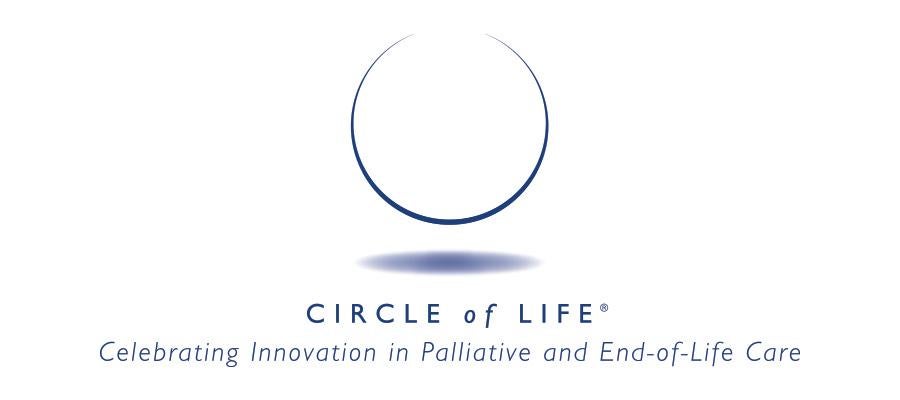Circle of Life honoree uses data and volunteers in palliative care

When Karen’s husband Donald was diagnosed with ALS at the age of 61, the devastating news came after a frustrating year of misdiagnoses. The couple soon went to an ALS support group meeting to try to make sense of the disease and what they might expect. At the meeting, a speaker from the Hospice of the Western Reserve mentioned the Western Reserve Navigator palliative care program.
At that time, the couple was overwhelmed by the idea of ALS, a little frightened by the word “hospice,” and wasn’t ready to consider palliative care. “We back-burnered it at that point, thinking, ‘We don’t need that,’” Karen recalls. But after her husband’s steady decline, that changed. “A year and a half later we said: ‘We do need that,’” she says.
She contacted the Western Reserve Navigator program, which sent a nurse practitioner to evaluate her husband’s condition. Even though they’d lived with the diagnosis for more than a year, it was still hard to take in all the ramifications of the degenerative disease and what course it might take. Physicians had been reluctant to give them a detailed prediction because of the variability in how ALS progresses in different people.
But their nurse practitioner, Brandie, provided helpful context and explained that they had choices about how Donald would spend his final years or months and that they should be putting those wishes in writing. “We were pretty clueless about all of that,” Karen says. “We never realized we had choices.”
The couple’s experience is typical of what the program has been doing for 17 years. As one of the nation’s first community-based palliative care programs, its teams are able to follow patients and families through all different settings of care, offering support and consistency. Patients and families can contact the program 24 hours a day, seven days a week, with any question or concern.
Judy Bartel, MSN, chief clinical officer, started the program after hospice leaders realized that 20 percent of the calls that came into the hospice referral office were looking for help with symptom management or goals of care for patients who were not eligible for hospice. “At the time, nobody was doing community-based palliative care, so we had no guidance to go by,” Bartel recalls. “We had to create it every step of the way.”
Using the multidisciplinary team model of hospice as an example, the program grew quickly. “We built it year by year with just good, sound practice of care in the home,” she says. “What I’m most proud about the program is it wasn’t a fly-by-night thing. It’s 17 years later, and it’s still sustainable. We take care of 600 patients every single day.”
Bartel is particularly proud that the Western Reserve Navigator Program follows National Consensus Project guidelines for palliative care, rigorously analyzing data and working continuously on quality improvement. “You have to constantly be evaluating those domains of care to be sure you have the best practice,” she says. The program’s parent, Hospice of the Western Reserve, developed its own in-house software called True North that offers granular analytics ability to answer deep questions about how the program functions.
The Western Reserve Navigator program is sustained through the revenue of nurse practitioner visits and the indirect revenue of earlier hospice referrals. And its leaders are pursuing value-based payment options such as shared savings with insurers.
Bill Finn, CEO of the hospice organization, says its devotion to its values and culture is one reason for its success, growth, and ability to adjust with the times. “We call our culture our ‘invisible architecture,’” he says. “It’s the vehicle through which all things come to life.”
Finn and other leaders are hands-on, regularly filling in as aides and other support positions to better understand the organization from all perspectives.
“We try to view the organization as flat, and everybody has the opportunity to share their concerns, observations, and best practices so we can gain the benefit of that,” he says.
Medical Social Worker Sheila Thomas says she’s appreciated the supportive environment. She was invited to present at a team-building day, explaining what social workers do and sharing some of her own personal story as well. “They want to draw out our strengths, our ability, our talents, and to feel comfortable sharing those with everybody,” Thomas says.
The Western Reserve Navigator program maintains a robust volunteer program that provides a wide variety of services to patients and families. Volunteers receive comprehensive training to prepare them to recognize changes that could warrant intervention. The volunteers are an integrated part of the palliative care team, which includes an advanced practice nurse, social worker and volunteer, explains Edie Nelson, a volunteer service manager for the program. “They are an essential part of the program and have been integrated from the beginning,” she says.
Among the services provided by volunteers are companionship, respite support, transportation, legal assistance, errands, light housekeeping, support phone calls, haircuts and reiki. There’s a special group of veteran volunteers who visit patients who are also veterans.
Karen and Donald also benefit from the volunteer program. They have a volunteer named Barb who comes to their house for a few hours of respite care every week to give Karen the chance to go to ukulele lessons. During one visit, Barb noticed Donald was having trouble breathing. Based on her training, she knew to report back to the clinical team, who were able to acquire additional equipment and provide treatment to meet his needs. Karen was grateful that Barb had a deep sense of compassion and urgency in supporting her and her husband. “We so appreciated that Barb had that training,” she says.
Click here to learn more about the Circle of Life Award: Celebrating Innovation in Palliative and End-of-Life Care and to download an application for the 2020 awards.

